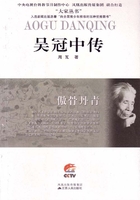The gradual growth of the milder principle, more favourable to the small states, which is summed up in the phrase "free ships, free goods," out of the mediaval principle found in the Consolato del Mare, which allowed the confiscation of the enemy's property even on friendly neutral ships, is one of the great gains in international law in the eighteenth century. But England has never accommodated herself to it, and has, with unheard-of assurance, and with decisions of the Court of Admiralty about prizes which can have been determined by nothing but national egoism, succeeded in injuring the trade of neutrals everywhere, in time of war, even when it could not destroy it. Busch shewed, in 1797, that of the last one hundred and forty-four years England had spent sixty-six in the most sanguinary naval wars.
They had all been more or less concerned, on the one side, with the conquest of colonies by force of arms, on the other, with the destruction of the neutral trade, i.e. the trade of the smaller states.
The blows of the English are nearest to us in time; they have also vitally affected Germany; and, accordingly, we are inclined, - measuring with the standard of today, - to condemn them most.
On the whole, however, they were naught else than what all the more powerful commercial powers allowed themselves in their treatment of the weaker. And although we condemn the whole period for excesses in the politico-commercial struggle, and see everywhere much injustice and error mingled with it, yet we must allow that passions and blunders such as these were the necessary concomitants of the new state policy, of the developing national economies; we must feel that those states and governments are not to be praised which did not pursue such a policy, but those who knew how to apply it in a more skilful, energetic, and systematic way than others. For it was precisely those governments which understood how to put the might of their fleets and admiralties, the apparatus of customs laws and navigation laws, with rapidity, boldness, and clear purpose, at the service of the economic interests of the nation and state, which obtained thereby the lead in the struggle and in riches and industrial prosperity.
Even if they frequently went too far, and were led by theories that were only half true, and gathered riches by violence and exploitation, yet, at the same time, they gave the economic life of their people its necessary basis of power, and a corresponding impulse to its economic movement; they furnished the national striving with great aims; they created and liberated forces which were absent or slumbered in the states they outstripped. And it was natural that what in these struggles was brutal and unjust should be lost to sight in each nation in the glow of national and economic success. We can understand that the several peoples asked only whether a Cromwell or a Colbert on the whole furthered national prosperity, and not whether he did injustice to foreigners in some one point. And historical justice does not demand more: it gives its approbation to systems of government which help a people to reach the great goal of national greatness and moral unity at a given time and with the means of that time, at home and abroad; systems, moreover, which have redeemed the harshness of national and state egoism as regards neighbouring peoples, by a model administration at home.
At any rate one thing is clear; a single community could not withdraw itself from the great current wherein the whole group of European nations was being swept along; and least of all, one of the smaller states which was still making its way upward. In such a time of harsh international and economic struggles, he who did not put himself on his defence would have been remorselessly crushed to pieces. As early as the sixteenth century, it became apparent what a disadvantage it was for Germany that it had neither the national and politico-commercial unity of France, nor the mercantilist regulations to which both England and France were beginning to resort. And this was still more apparent in the seventeenth century. The military and maritime Powers of the West not only drove the Germans out of the few positions they had at first obtained in the colonial world; they menaced more and more even the trade they had long possessed. The Hanseatic merchants were driven out of one position after another. One after another the mouths of the great German streams passed into foreign hands:















